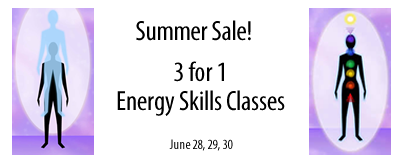A lesson I’ve been talking about lately is that excuses are endless and there is ALWAYS something that will get in the way of fulfilling your calling — if you let it.
I can’t tell you how many people I’ve heard from who say they will pursue their big dream — but later…
When they have more time.
When they aren’t so busy.
When things settle back down.
After they file their taxes, or finish their remodel project, or …
After the kids die
Have you seen that joke about the couple who goes to get divorced in their 90s? When asked why they waited so long, they respond, “We had to wait until the kids died.”
It’s a great reminder of the way we fool ourselves into waiting.
News flash: This is it!
Unless something truly extreme is going on (you’re in the hospital, a close relative just died, you just had a baby, etc.), nothing is ever going to change. There will ALWAYS be something.
Even worse: you’re doing it to yourself.
The sooner you accept that and make time for your big dream, no matter what, the happier you are going to be.
It doesn’t have to be a lot
Don’t fool yourself about what it takes either. The brilliance of the Writer’s Circle that we can translate for anyone — writer or not — is the power of incremental, cumulative progress. If you’re telling yourself that you’ve got to have big chunks of time to get your life’s work done, I say, bull shit.
All it takes is a little bit of time, every day.
In the last session of the Writer’s Circle, I was thrilled to see one of my participants — who was writing for just 5 minutes a day — say that she now believes in herself as a writer again.
You can have that too — if you’re willing to give it to yourself.
And I know you can.
Bottom line
What are you telling yourself about why you can’t take action on your big dream? It’s time to start seeing that for what it is, and put your energy where your heart is. It’s worth it.
Your turn
Tell me your thoughts. I always love to hear from you.
Warmly,

~> June 28th, 29th, & 30th. My first annual Summer Sale — 3 for 1 on my self-study energy skills classes. Particularly good for sensitive, empathic, and creative types. https://calledtowrite.com/SummerSale
~> July 5th. Last day to register for the next 4-week session of my “Just Do The Writing” Accountability Circle. For serious writers and for writers who want to get serious about their writing. http://JustDoTheWriting.com
~> July and August. It’s almost time for the next Life Purpose Breakthrough Group. Are you interested in grabbing a spot before we sell out? Email my team and we’ll put you on the advanced notification list. Find out more at http://LifePurposeBreakthrough.com
![]()
~> Ongoing. Mentoring with screenwriter Chris Soth and participating in ScreenwritingU’s Pro Rewrite class after finishing the ProSeries.* (They’re offering their free rewrite* class this month, which is great.)
~> September 18 to 20th. Heading to Hollywood for a ScreenwritingU* event to meet with producers and agents.
~> September 21st to 22nd. Staying on in Hollywood for the InkTip Pitch Summit.
~> Sacred writing time. Early mornings and Fridays.
~> Still reading Harry Potter & the Order of the Phoenix with my little boy and Kill the Dead by Richard Kadrey on my own. Still in the movie queue: (500) Days of Summer, Another Earth, and The Day the Earth Stood Still. Not watching a lot these days.









